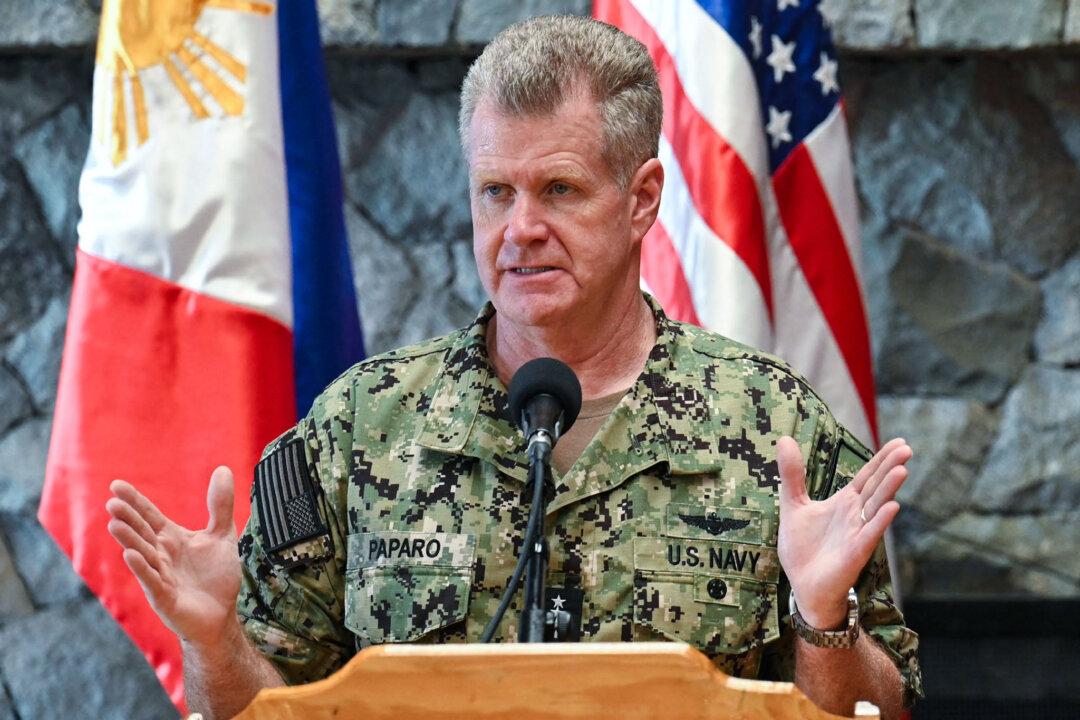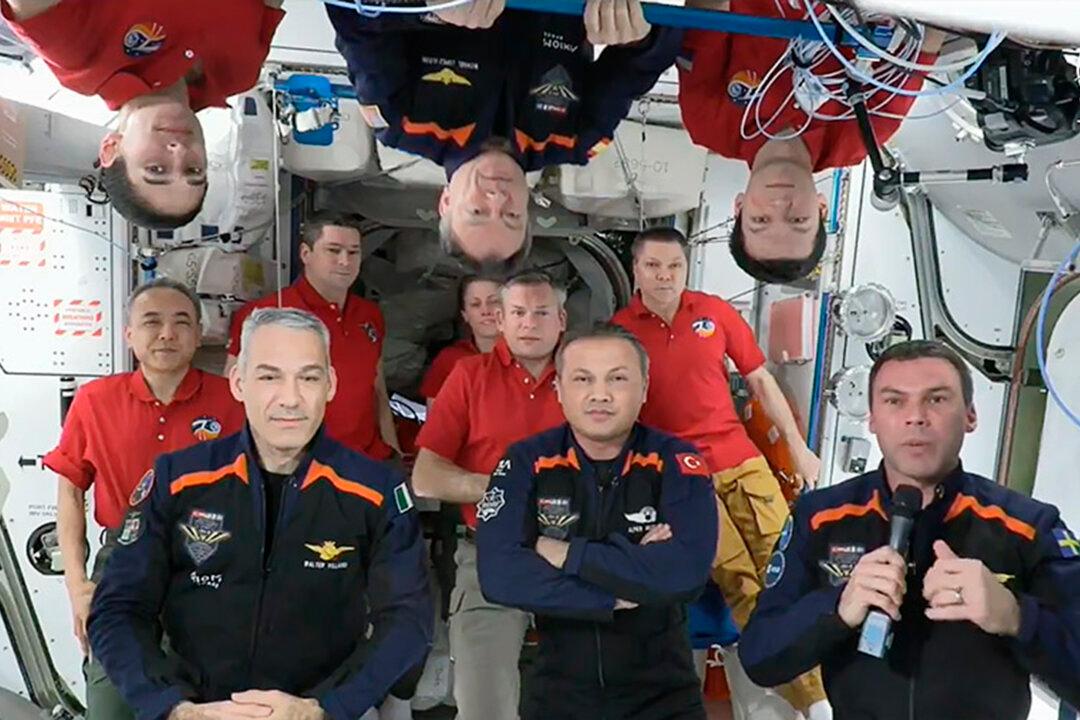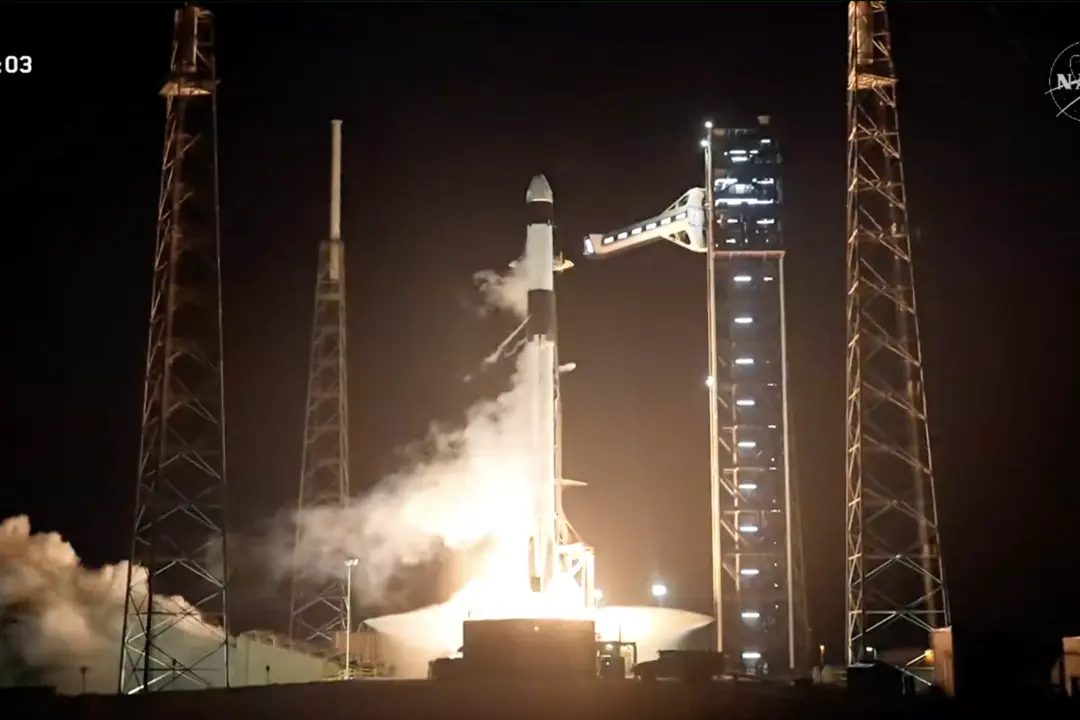The United States needs an all-around resurgence in its development of military capabilities to combat the growing threat from communist China in the Indo-Pacific, said Admiral Samuel Paparo, commander of the U.S. Indo-Pacific Command, to the Senate Armed Services Committee on April 10.
“China’s outproducing the United States in air, missile, maritime, and space capability, and accelerating these,” the admiral said in his opening statement. ”I remain confident in our deterrence posture, but the trajectory must change.





